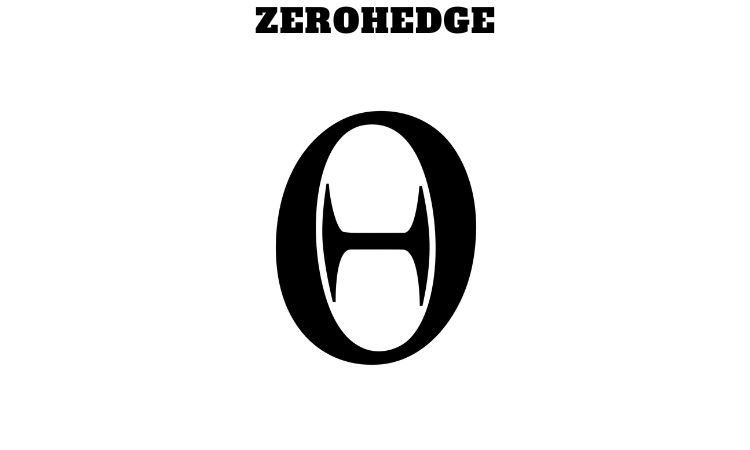
ZeroHedge is a widely read financial blog that has gained notoriety for its unconventional take on markets, economics, and geopolitics. Founded in 2009, the platform has attracted a loyal following while simultaneously drawing criticism for its often bearish outlook, conspiracy theories, and anonymous authorship. Despite its controversies, ZeroHedge remains a significant voice in alternative financial media, influencing traders, investors, and policymakers.
The Origins of ZeroHedge
ZeroHedge was launched in 2009 under the pseudonym “Tyler Durden,” a reference to the fictional character from Fight Club. The blog quickly gained traction during the financial crisis by offering contrarian perspectives that challenged mainstream financial narratives.
The site’s name, ZeroHedge, reflects its philosophy: a belief in the eventual collapse of financial systems due to excessive debt, central bank manipulation, and unsustainable economic policies. The platform became a hub for traders, libertarians, and skeptics of government and central banking policies.
Editorial Style and Key Themes
ZeroHedge is known for its distinctive editorial style, characterized by:
Bearish Market Analysis – The blog frequently predicts market crashes, hyperinflation, and economic downturns.
Anti-Establishment Tone – It often criticizes central banks (especially the Federal Reserve), governments, and mainstream media.
Anonymous Sources – Many articles are written under the “Tyler Durden” pseudonym, raising transparency concerns.
Geopolitical Commentary – ZeroHedge covers global events, often linking them to financial markets.
User-Generated Content – The site allows guest contributions, which sometimes include fringe or unverified claims.
Major Controversies Surrounding ZeroHedge
Despite its popularity, ZeroHedge has faced significant backlash over the years:
1. Accusations of Spreading Misinformation
Critics argue that ZeroHedge promotes conspiracy theories, such as claims about central bank manipulation, market rigging, and COVID-19 misinformation. In 2020, Twitter temporarily suspended its account for violating policies on COVID-related content.
2. Russian Propaganda Allegations
A 2020 report by the U.S. Department of Homeland Security suggested that ZeroHedge may have been used to amplify pro-Russian narratives. The blog denied these claims, but the allegations damaged its credibility.
3. Anonymous Authorship and Lack of Accountability
Since most articles are published under pseudonyms, it’s difficult to verify the expertise of contributors. This has led to accusations of sensationalism and unreliable reporting.
4. Market Manipulation Concerns
Some analysts believe that ZeroHedge’s bearish articles can exacerbate market volatility by spreading fear. However, supporters argue that it merely highlights risks ignored by mainstream media.
ZeroHedge’s Influence on Financial Markets
Despite its controversies, ZeroHedge has a measurable impact on financial markets:
Retail Investor Sentiment – Many retail traders follow ZeroHedge for alternative perspectives, which can influence trading decisions.
Short-Selling and Bearish Bets – The blog’s pessimistic outlook often aligns with short-selling strategies, affecting stock movements.
Central Bank Criticism – ZeroHedge’s scrutiny of Federal Reserve policies has contributed to public distrust in central banking.
Alternative Data Sources – The site aggregates unconventional data (e.g., shadow banking risks, derivatives exposure) that mainstream outlets sometimes overlook.
The Future of ZeroHedge
ZeroHedge remains a polarizing force in financial media. While some dismiss it as a fringe blog, others value its willingness to challenge conventional wisdom. Its future may depend on:
Regulatory Scrutiny – Increased oversight on financial misinformation could impact its operations.
Monetization Challenges – As platforms crack down on controversial content, ad revenue may decline.
Competition – Rival alternative finance blogs could erode its audience if it fails to adapt.
Conclusion
ZeroHedge has carved out a unique niche in financial media by offering contrarian, often controversial perspectives. While its doomsday predictions and anonymous authorship have drawn criticism, its influence on traders and market sentiment cannot be ignored. Whether seen as a truth-teller or a fearmonger, ZeroHedge remains a significant player in the world of alternative finance.
Frequently Asked Questions (FAQs)
1. What is ZeroHedge?
ZeroHedge is a controversial financial blog known for its alternative views on markets, economics, and geopolitics. It often critiques central banking policies and mainstream financial narratives.
2. Who owns ZeroHedge?
The site was co-founded by Daniel Ivandjiiski, a former hedge fund analyst, but most articles are published under the pseudonym “Tyler Durden.”
3. Why is ZeroHedge controversial?
ZeroHedge has faced criticism for spreading conspiracy theories, market fearmongering, and COVID-19 misinformation, leading to temporary bans on platforms like Twitter.
4. Is ZeroHedge reliable for financial news?
While some traders value its contrarian insights, others dismiss it as sensationalist. Investors should cross-check its claims with mainstream financial sources.
5. Why does ZeroHedge use the name “Tyler Durden”?
The pseudonym references the anarchist character from Fight Club, symbolizing the blog’s anti-establishment and anti-central banking stance.
6. Has ZeroHedge been accused of spreading Russian propaganda?
Yes, a 2020 U.S. government report suggested ZeroHedge may have amplified pro-Russian narratives, though the site denies these allegations.
7. Does ZeroHedge influence stock markets?
Yes, its bearish reports can impact trader sentiment, particularly among retail investors and short sellers.
8. Why was ZeroHedge banned from Twitter?
In 2020, Twitter suspended ZeroHedge for violating its COVID-19 misinformation policies after it published unverified claims about the virus.
9. What kind of content does ZeroHedge publish?
The blog covers financial markets, central bank policies, geopolitical events, and economic collapse theories, often with a pessimistic tone.
10. Is ZeroHedge still active?
Yes, ZeroHedge remains operational and continues to publish daily market analysis and opinion pieces.


